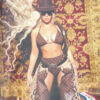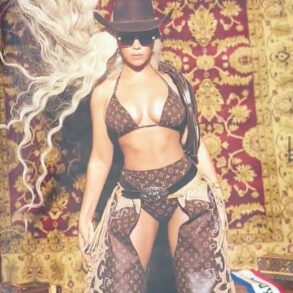By Rod Myer
DAVID BARDAS August 30, 1937-August 2, 2023
David Lawrence Bardas AO, clothing industry entrepreneur, husband, father and grandfather, fashion dream weaver and trailblazer, has died aged 85.
David was born to Esther and Morris Bardas, who had eastern European Jewish migrant backgrounds. Morry Bardas created two fashion brands, Sportscraft, a design and manufacturing operation, and the retailer Sportsgirl.
David was only 22 when he took over the business following Morry’s sudden death in 1959. Sportsgirl was then only 10 years old with six shops and an uncertain financial footing and David had to stop his law studies to run it.
Industry trailblazer David Bardas.Credit: Elli Bardas
He described it as “a nice little family business with excellent brands and reputation and all-important contacts with David Jones and Myer”. On Morry’s death, it had a turnover of 966,000 pounds.
David used to say that once he took over the business, he “went like hell to grow it” frightening some old hands in the process. But he also created something vibrant, new and exciting.
In 1961, David married Sandra Smorgon, daughter of philanthropic industrialist Victor Smorgon and wife Loti. Together, they raised six children and built a family ethos of social involvement, business, leadership, love and creativity.
Despite his new family and business responsibilities, David found time to finish his law degree at Melbourne University in 1962.
His ambitions drove an extraordinary business expansion and by 1990 the Sportscraft-Sportsgirl group had grown into a fashion empire that included 19 women’s and men’s fashion labels with sales of $50 million a year.
There was a stable of 200 retail stores. There were labels included Sportsgirl, David Lawrence and Ellie B, eight manufacturing plants in Victoria and NSW, offshore production facilities and an extensive property portfolio.
Sportsgirl, in particular, caught the imaginations of two generations of women and girls, selling dreams of style and beauty that spoke to them deeply. At its peak, the group was selling 3 million garments a year which hung in nearly all the wardrobes of women under 30.
David Bardas about 1980.
Part of David’s genius was an intuitive understanding on how fashion and colour made people feel, and it is perhaps encapsulated in the iconic Sportsgirl shopping bag with its red, white, green and blue colouring, still featured in company marketing today.
David Bardas had a unique style in business and in life. He was a disruptor by nature who believed you always needed to do something new. He had a sense about what might work and had the courage to try it.
Personal relationships drove his business life. He encouraged informality and independence in the working environment and rejected the hierarchy or entrenched structures which turned employees into robots. “We always had a flat structure,” he said, “with less hierarchy, the best idea wins, and I like that concept.”
He was known to all and sundry as DB and today people still approach his children in the street to proudly say “I worked for DB”.
David was a complex man whose intellect and insights did not come in a traditional package. In his eulogy his children said of him: “He was shy, gentle, smart, sensitive, thoughtful and perceptive. DB ran on feel, instinct, emotion and a razor-sharp intellect.”
David liked to work with teams, but he had no patience for waffle or jargon and in meetings he could be something of a bomb-thrower. Not in a destructive way. Rather he would call out what he saw as unhelpful nonsense and drop in ideas he thought would get things on track.
He was a master of the one-liner – not in an attempt to be glib but because he thought they could encapsulate new, creative, possibilities that others could use.
“Take my advice, I’m not using it,” he would say, or “deadlines make things happen.” He had a passion for writing to which he devoted a lot of time following the sale of the Sportsgirl group after the 1990 property bust.
His works included a book of sayings and insights gleaned from his close relationship with his father-in-law, the industrial dynamo Victor Smorgon, and a book on his time on the Melbourne City Council entitled Clown Hall.
He related to people on a personal level and had a sixth sense on what was going on inside them. He would ask, “are you ok, what’s on your mind, is there anything I can do to help?”
“He saw you, your skills and talents and could somehow tickle that out of you,” his children said at his funeral.
David recognised, loved and fostered talent and drive, and he empowered women in his business decades before that became a popular idea. At Sportsgirl, his staff was almost entirely female, and it was said that he had “shattered the glass ceiling before it was even noticed elsewhere”.
He inspired a generation of designers and retailers. Think names like Sally Browne, Craig Kimberley, Jane Lamerton, Peter Alexander and Sophie Holt.
“If I had to condense my life into just a few words, I’d say that I was an encourager,” David said.
With wife Sandra, there was “a symbiotic beauty of polar opposites combining to create a magical force, building an incredible life together filled with family, travel, business, art, adventure and giving back”, his children said at his funeral.
Together they put energy and money into philanthropy. They gave support to Israel and Jewish causes along with causes and projects in the wider world including Indigenous empowerment. He believed he was part of “the lucky family from the lucky country” and taught the importance of contributing to society to his wider family.
With Sandra, he was an important art collector and patron and donated works to public institutions. Their Bardas Foundation has donated millions of dollars in pursuit of its aims to support education, welfare, Indigenous empowerment, welfare, peace and fairness world-wide.
David’s heart was broken by Sandra’s death in 2007. Following that his children said he began to lead them in a new and different way characterised by a “gentle, subtle, kind, undeniable energy”, his children said.
He was an active grandfather to his eight grandchildren whom he loved and was very engaged in their lives.
David is survived by his children Belinda, Robyn, Anna, Elli, Morris and Ben. Also, his sister Helena Rymer and grandchildren Leilana, Dakota, Cyan (deceased), Aliette, Max, Bohdie, Kanuka, Noah and Phoenix.
Rod Myer is the author of Living the Dream, the Story of Victor Smorgon.
Most Viewed in National
This post was originally published on this site be sure to check out more of their content.








